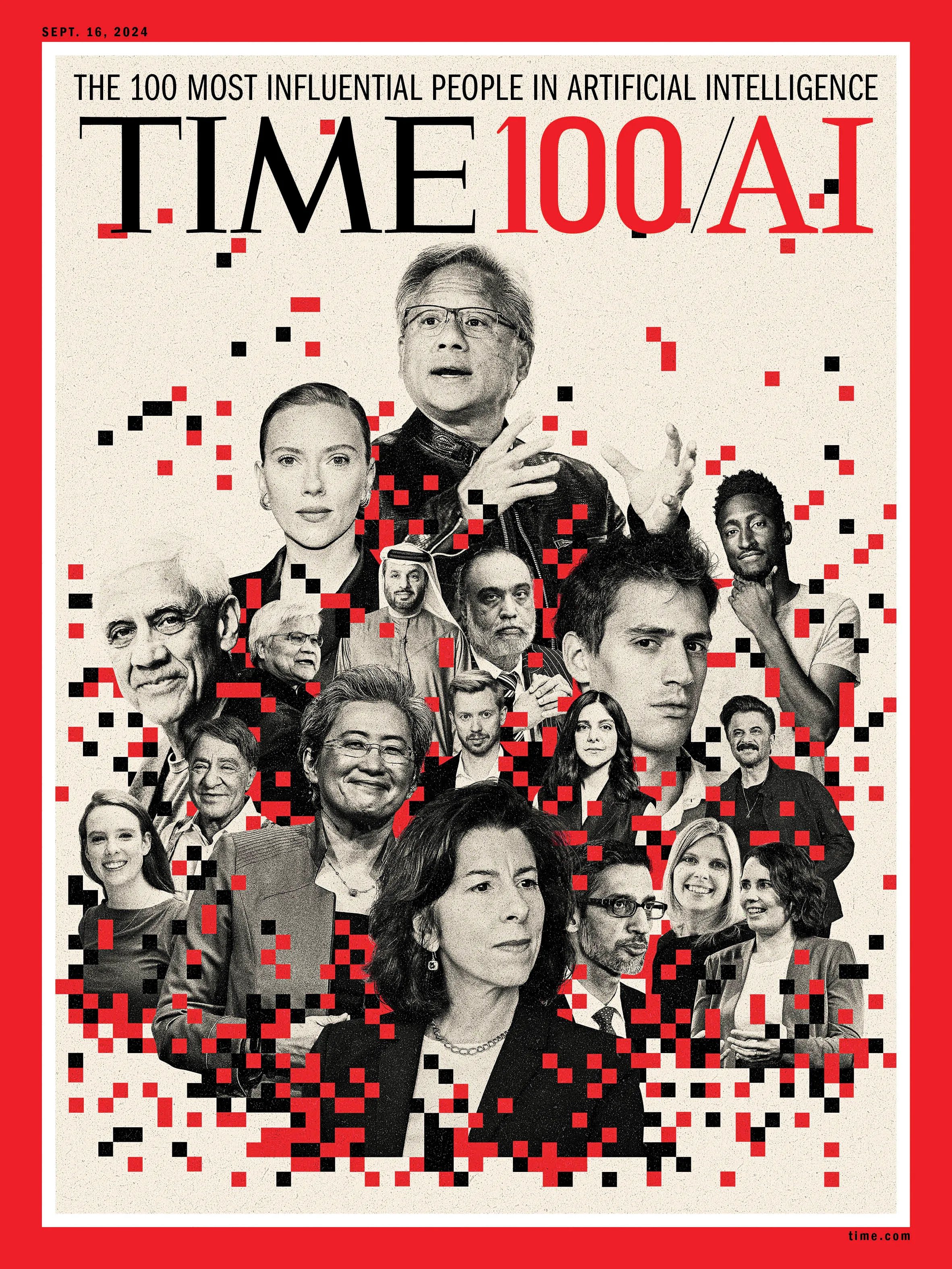Rising Stars & Absent Icons
TIME’s 2024 AI 100 List has sparked conversation across the tech world with its unexpected inclusions and notable omissions. This year’s list highlights a diverse group of individuals, from leaders of major tech companies and startup innovators to educators and influencers like YouTuber Marques Brownlee who has effectively used his platform to shape public understanding of AI. The list reflects the rapidly evolving AI landscape, where the voices shaping the field are becoming as varied as AI’s applications.
A defining feature of this year’s list is its focus on individuals who not only advance AI technology but also actively shape the narrative around its ethical use, potential risks, and societal impact. Figures like Meredith Whittaker, president of Signal, advocate for privacy and caution in an industry increasingly dominated by a few large tech companies. The list also features individuals like Fei-Fei Li, co-director of Stanford’s Human-Centered AI Institute, who emphasizes ethical AI research and its impact on society.
However, the list has also raised eyebrows due to the absence of several significant figures in the AI space. Notably missing are Mo Gawdat, former Chief Business Officer at Google X, known for his outspoken commentary on AI’s ethical implications, Emad Mostaque, founder of Stability AI, who has championed the democratisation of AI tools; and Elon Musk, CEO of Tesla and SpaceX, a co-founder of OpenAI, and a prominent advocate for AI safety.
Elon Musk’s exclusion is particularly intriguing given his history with AI safety advocacy and his recent endeavors with Grok, a new AI platform that allows users to work in a “fun” mode, effectively loosening traditional guardrails around text and image creation. While Musk has often voiced concerns about the potential dangers of AI, including its existential risks, Grok’s approach seems to embrace a less constrained environment for creative exploration, which could potentially undermine some of the very safety principles he has championed. This dichotomy may have influenced TIME’s decision to leave Musk off this year’s list, reflecting a focus on individuals whose actions align more consistently with their stated AI safety concerns .
The inclusion of media personalities like Marques Brownlee might indicate a recognition of the critical role that communicators and educators play in forming public perception and understanding of AI. It serves as a reminder that influence extends beyond creating technology to how that technology is explained, perceived, and adopted by society.
TIME’s selection may also reflect an editorial intent to highlight voices that challenge the status quo, raise critical questions, and offer new perspectives on the future direction of AI. The absence of key figures may represent a deliberate choice to prioritize emerging voices over established names or to achieve a more balanced cultural and geopolitical representation of global leaders in AI.
As AI continues to expand its influence, debates over who should be featured on such lists underscore the importance of both innovation and ethical stewardship in the tech world. It will be fascinating to observe how these editorial choices impact the broader AI landscape and who will emerge as influential figures in the coming years.
